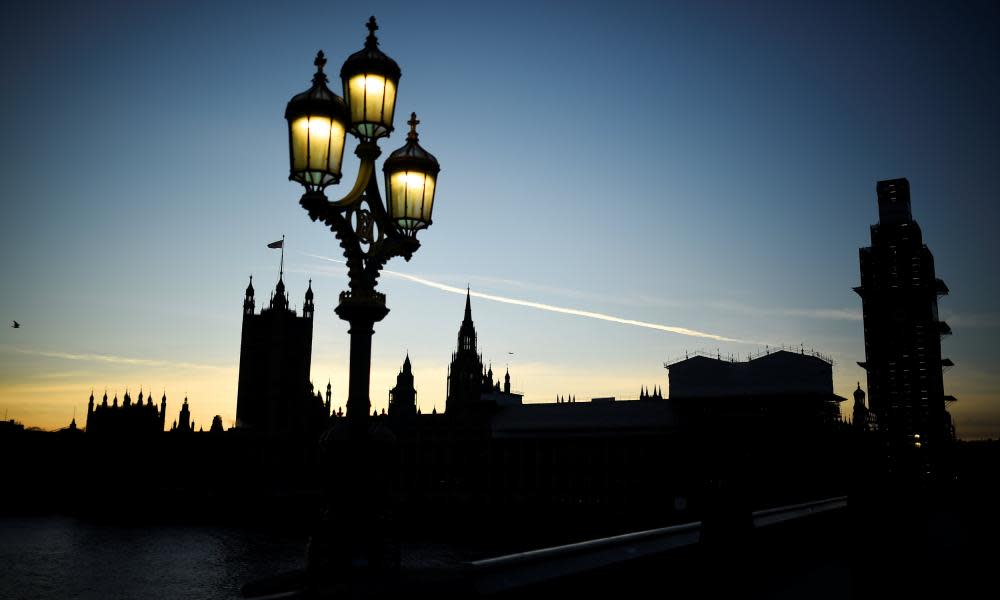Trying to keep our heads amid Brexit chaos

It’s not only those with “serious wealth” who are worried about the radical changes that might occur after a rupture with Europe (Larry Elliott: Only a rupture with the EU will alter this failed status quo, 17 January). As a public sector pensioner I am dependent on the state for my pension, and what scares me most is the prospect of a no-deal Brexit leading to a major economic downturn. If that happened government revenues would collapse and the government would have to make major savings. One obvious source of such savings would be pensions – the largest item in the social security budget. I don’t welcome the prospect of a Greece-like scenario in which a desperate government makes swingeing pension cuts in an effort to balance the books. Rather than rely on the predictions of members of either the visionary left of Larry Elliott or right of Roger Bootle, I would prefer some continuation of the status quo that would guarantee my pension income for the indefinite future.
Derrick Joad
Leeds
• Larry Elliott writes that only a rupture with the EU will alter the failed status quo. Not so. The Tory party will have to rationalise its internal position, so the party can formulate a single position regarding our relationship with the rest of the world. Similarly, Labour will have to rationalise its position regarding our trade deficit and the scope for public spending. Britain needs a politics that reflects our diminished status in the world, and the fact that Britain is now owned by foreign interests.
Martin London
Henllan, Denbighshire
• Theresa May cannot construct a solution to Brexit. Jeremy Corbyn cannot construct a solution to Brexit. Responsible MPs must work across party boundaries and build a coalition with a six-month mission to find a softer Brexit or facilitate a people’s vote. Kenneth Clarke and Margaret Beckett, as respected and immensely experienced figures representing no threat to the political ambitions of their younger colleagues, are the dream ticket to head up the administration to solve this mess.
Mike Shearing
Southall, London
• The interests of the nation come a long way behind those of the Conservative party (Letters, 17 January). Rather than risk a death blow to themselves, the Tories will alway let the nation take the hit (look at the Corn Laws), and that brings us to our present sorry situation. Let us have no illusions about this government ruling for everyone.
Ann Gordon
Romford, London
• During the present turbulent times I am reminded of the opening lines of Rudyard Kipling’s poem If when watching the measured control of the Speaker. Well done, John Bercow.
David Radford
Laxfield, Suffolk
• Contrary to Chris Bickerton’s belief (Arrogant remainers want a second vote. That would be a bad day for democracy, 16 January), MPs have not been voting on “a decision taken by a majority of the electorate”, but on a decision taken by around 37% of the electorate. That’s why people are calling for a second referendum.
If you saw a man standing on the parapet of a bridge, you might fully understand and sympathise with his reasons for wanting to jump, but not to the extent of letting him hold on to your sleeve as he did so.
Rita Gallard
Norwich
• The hypocrisy of remainers is breathtaking. They claim a second referendum would enable the people to have the final say on Brexit. Yet they would rig its wording. Their proposed loaded question would offer voters the choice of either May’s ill-fated withdrawal agreement or a revocation of article 50.
This fails to reflect the real choice facing the country. It’s either a clean Brexit via WTO or staying in the EU. So-called soft Brexit options such as “Norway-plus” amount to staying in the EU but with no say. Voters should not be deprived of a straight forward “in or out” second referendum.
Yugo Kovach
Winterborne Houghton, Dorset
• Much comparison has been made between the Conservative government’s huge defeat in the vote on the Brexit deal and the vote that brought down Ramsay MacDonald’s first Labour government in 1924 with a majority of 166. The two votes were completely different: on Tuesday 118 Conservative MPs voted against their own government whereas the 1924 Labour government was much more of a minority government, with only 191 MPs, and not a single one of those Labour MPs voted against it in the crucial vote.
Michael Meadowcroft
Leeds
• As a Labour voter who has been quietly enjoying some schadenfreude during recent months over the Tories’ self-annihilation, surely it is time now to mention the unmentionable: the unification of Ireland. The demographics in the north are already pointing this way. If this succeeds, the need for a “backstop” will disappear, the UK will save £10bn a year in grants and the purpose of Sinn Féin will have been achieved. This taboo has rarely been expressed. The mention will become the basis of debate, new policies will be formed and 1,200-odd years of resentment, to put it no worse, could be ended.
Gerry Harrison
Kilmaley, County Clare, Ireland
• Is it not payback time for the seven Sinn Féin MPs to take their seats in the House of Commons in support of their friend Jeremy Corbyn?
Robert Parkhill
Brentford, London
• Barry Coomber proposes Ole Gunnar Solskjær for temporary prime minister (Letters, 17 January). Is this the Norway-plus option?
Tony Cole
London
• Join the debate – email guardian.letters@theguardian.com
• Read more Guardian letters – click here to visit gu.com/letters
• Do you have a photo you’d like to share with Guardian readers? Click here to upload it and we’ll publish the best submissions in the letters spread of our print edition

 Yahoo News
Yahoo News 
